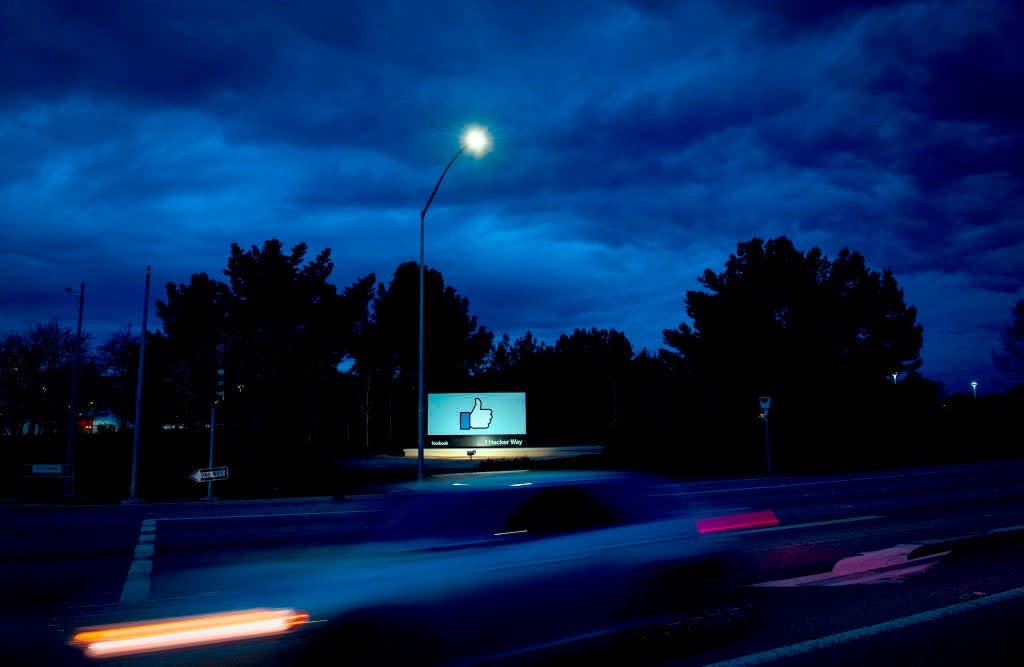Facebook, Instagram and WhatsApp come back online after huge outage

Facebook and its apps have come back online after a huge outage.
Instagram, WhatsApp, Messenger and the main Facebook app had all been offline for more than six hours in one of the biggest technical failures in the company’s history.
The problems also affected Facebook’s own internal services – apparently leaving it unable to properly address the outage – and the additional web traffic sent to rivals such as Twitter and Telegram meant that they slowed down dramatically.
Facebook spokespeople offered their apologies to everyone affected by the problems, but little by way of explanation of how the world’s biggest websites went offline for much of the day.
It is likely that any fixes will take some time to filter out and users could still be hit by problems long after a solution is in place, given the relatively large and unwieldy nature of the infrastructure underpinning a company like Facebook as well as the many other apps it runs.
As Facebook came back online, for instance, users reported that they were seeing “login error code two”, which the company uses to alert them to connection errors. Some Instagram feeds failed to load and WhatsApp often span around with a “connecting” message.
But even that was a marked improvement from the array of error messages and unloaded pages that greeted users of Facebook and its other services around the world through much of Monday.
The technical issues are likely to prove vastly expensive. Facebook’s turnover equated to roughly $10m an hour last year – and many other external companies rely heavily on the app, Instagram and WhatsApp to conduct their business.
Facebook gave little indication of what had caused the issue, or how it was eventually fixed. Instead, its employees and official accounts opted to apologise vaguely on Twitter, and promised to do what they could to get things back to normal as quickly as possible.
“*Sincere* apologies to everyone impacted by outages of Facebook powered services right now,” said Facebook’s Mike Schroepfer, the outgoing chief technology officer, in a tweet. “We are experiencing networking issues and teams are working as fast as possible to debug and restore as fast as possible.”
Similar posts came from the official accounts run for Instagram, Facebook and Twitter, as well as its spokesperson Andy Stone. None offered any clear indication of how the problems had begun.
Facebook’s problems appeared to be related to the domain name system, or DNS. That is often referred to as the phone book of the internet, taking the URL a person types into their browser – such as Facebook.com – and turning it into a numerical address that can then be asked for the data that makes up the website being accessed.
The company runs its own DNS, unlike many other smaller firms. As such, it is at liberty to make changes itself – and to remove those records, too, which was what seemed to have happened at some point on Monday.
Without the correct DNS configurations, browsers were unable to access the Facebook website, and apps could not properly call the servers needed to fill up Instagram with new posts or WhatsApp with new messages.
In all, a vast array of Facebook of services went down. They included not just its large apps but virtual reality platform Oculus, and office social network Workplace.
Facebook has faced criticism from regulators for its vast size, and has been accused of the US Federal Trade Commission of operating a monopoly over personal social media in the country. But at the same time it has been bringing those various apps together, to use the same underlying technologies – not only making it harder for any regulation to force it to be broken apart, but also meaning that any technical problem with one server immediately hits its other apps too.
The issues probably affected companies beyond Facebook too, given that many other platforms rely on its tools – such as the ability to log in with a Facebook account – to run their own websites.
Indeed, the issues were so widespread that many presumed that the internet had simply gone down entirely. Users of phone and internet companies across the UK, US and beyond complained that they had been taken offline, but those complaints appeared to be a result of the fact that Facebook simply makes up so much of the internet.
Facebook also relies heavily on its own systems to power the company itself, and so its internal workplace forum and communications tools were hit by the outages too.
The problems meant that some Facebook employees seemed to enjoy the time off. Adam Mosseri, the head of Instagram, declared that it “does feel like a snow day” on Twitter.
But the fact that the technical problems had also caused issues within Facebook also presumably made them vastly more difficult to fix. Reports said that the company had been forced to send engineers to physically access the problem servers, because they were unable to access them remotely as they might expect to.
Still, the outage was not the longest in Facebook’s history. In 2019, that record was set by a technical issue that lasted for more than 24 hours, and about which Facebook was largely cryptic in its explanations.
Later, a transcript of an internal call published in The Verge showed that Facebook chief executive Mark Zuckerberg was anxious about the effect of such problems. When its services go down – especially its private chat services, such as WhatsApp – “there are people who just don’t come back”, he cautioned, moving over to rival messaging services forever.
“And then it takes months to fight and earn back people’s trust and usage of our services,” Mr Zuckerberg said then, the website reported. “So yes, it’s a big deal.”

